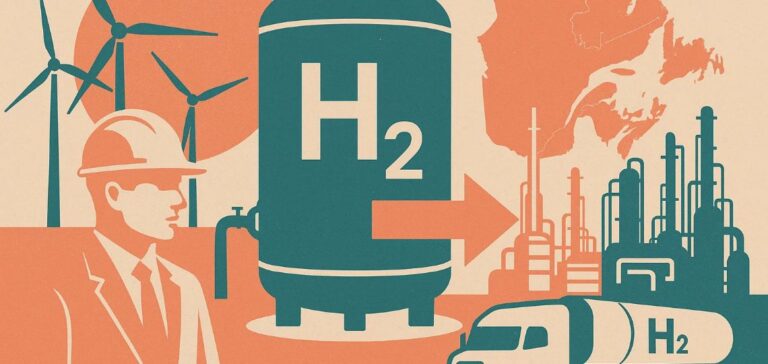The government of Newfoundland and Labrador announced on May 15 a partnership with the Atlantic Hydrogen Alliance (AHA) to develop a strategic hydrogen supply chain plan in Canada’s Atlantic region. The initiative also includes local entities Energy NL and Net-Zero Atlantic, with a total funding of CAD400,000 ($292,000).
The programme aims to identify the development, construction and operational requirements for a regional hydrogen industry. The Ministry of Energy stated that the analysis will provide a clear understanding of hydrogen deployment in the region and the necessary infrastructure for a local industry.
Toward domestic and export-oriented production
AHA Executive Director Derek Estabrook stated that the initiative will help structure the logistics chain to support both domestic consumption and export potential. The project takes place against a national backdrop where federal tax incentives for low-carbon hydrogen investments are expected to be upheld despite current political uncertainty.
Analysts interviewed by S&P Global Commodity Insights said that the potential appointment of Mark Carney to a senior executive role in Canada could reinforce tax credits for low-emission technologies, including green hydrogen and ammonia. However, the formation of a minority government after the elections could slow down long-term decisions.
Rising production costs in Alberta
The cost of producing green hydrogen through alkaline electrolysis in Alberta was assessed at CAD8.61/kg ($6.29/kg) on May 13, according to Platts, a division of Commodity Insights. This estimate includes capital expenditures (capex). By comparison, the cost of grey hydrogen, produced through steam methane reforming without carbon capture, stood at CAD1.25/kg ($0.91/kg) on the same day.
In April, the average cost of green hydrogen produced via alkaline electrolysis in Alberta reached CAD4.39/kg ($3.21/kg), marking a 37% increase from March. During the same period, the average cost of grey hydrogen fell by 32%, reaching CAD1.24/kg ($0.90/kg).
Structuring regional coordination
The AHA project aims to provide an analytical framework for developing a regional hydrogen value chain aligned with export ambitions to European markets. The role of local industrial and institutional partners will be key in identifying existing or required technical and logistical capacities.
“This project will help develop the supply chain needed to support both domestic and international hydrogen opportunities,” said Derek Estabrook in a statement issued by the provincial government.






















